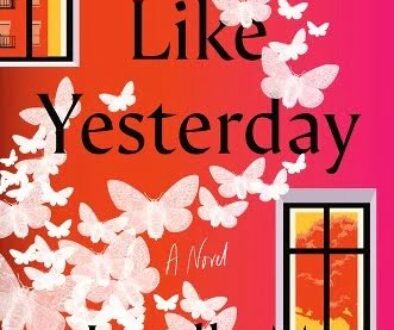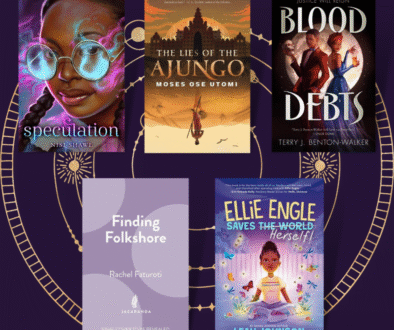The Plot Thickens: This is How We Fly
Can a fandom thrive in spite of its disillusionment with the creator of the universe they hold dear? This is the question many a Potter fandom-adjacent organization, BGC included, has faced throughout the timeline of J.K. Rowling’s consistently irresponsible transphobic and imperialist social media ramblings and poorly executed recent works. If the way Anna Meriano’s This is How We Fly deftly addresses this question while centering the story on a group of fans across the gender and ethnic spectrums is any indication — the fans will be alright.

Ostensibly, This is How We Fly is a story about how a soon-to-be college freshman spends her last summer at home dealing with flagging friends, a conflict-heavy home, and her own questions about identity by channeling this anxiety-inducing energy into Quidditch gameplay. However, Ellen Lopez-Rourke, the main character of this story, is not so easily summed up. Having lost her mother at a young age, Ellen has only ever really known the semblance of a mother-daughter relationship through watching how the mothers in her life treat their children. This includes her stepmother Connie’s relationship with her ten year old daughter, Yazmin. She wishes that she and Connie could be as close as Yazmin is with her father as she’s grown up with both in her life since she was eight years old. Unfortunately, Ellen’s teenage ‘attitude’ has laid waste to the good relationship she once had with Connie who does not understand why Ellen is not like how she was as a teenager. Frustrations are further inflamed by Ellen’s father taking on a new job that means he spends more time than usual away from home so Ellen tends to target her annoyance towards Connie who seems to be ever present. Luckily, Melissa, one of Ellen’s best friends since middle school, has a summertime solution that will lead the former band and choir geek out of the house on a regular basis – Quidditch league.
While initially reluctant to get into the sport, mainly because Ellen is just as enthusiastic about exercise as any comfort-seeking book nerd is, she finds it a major source of happiness during a summer where everything she once knew and drew support from is changing. As the story evolves we learn how Ellen juggles her insecurities about her Latinx and gender identities with her growing interest in social justice — views that are still shaping in her mind and remarked upon with laughter by her parents. There is nothing deterrent in this portrayal, as Meriano does a good job in grounding the significance of these issues in the relationships that Ellen has with her friends like Xiumiao, the friend she’s known longest, who is closeted at home and building relationships during the summer that will allow her to live her truth aloud. Understanding that she has people in her life directly who are affected by homophobia, transphobia, and other hateful behaviors, Ellen tries to figure out how to stand up against the harmful comments that her parents make. She finds that her ideological stances are met with derision. Her parents view these as ideas that are too big for her to be worried about as a teenager, which is a reaction that makes Ellen all the more ready to be taken seriously as a college student. The missteps that she makes in attempt to claim her adulthood, namely going to Quidditch practice or down the block without sharing her location with her stepmother, ends with her being grounded for the majority of her summer vacation, with Quidditch as the only exception.
Many of Ellen’s interactions with her stepmother hit home with what I went through as a teenager with a step parent — from them being more restrictive than the parent we grew up with to them reacting more extremely to teenage scrutiny. I also found Ellen’s growing awareness of social justice issues through compassionate interest in making the world better for everyone close to my own. The way she finds community in a space inspired by the Harry Potter series, that is immeasurably more gender inclusive than the series ever will be, mirrors so much of the experience I’ve gained as part of the Harry Potter fandom. Ellen Lopez-Rourke is an exceedingly relatable character with a growing awareness of her shortcomings and a willingness to become a better person without knowing exactly how to do so. Is this not the same self-actualization that we’re all going through? What’s more relatable than that?



